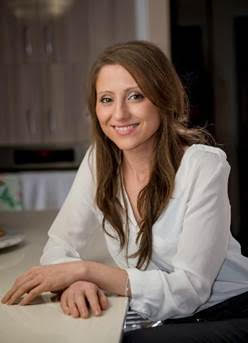Women are confident in returning to work after giving birth
- Written by Jasmina Dugalic

Returning to work after maternity leave is a concept that many women find very difficult because of a range of concerns, from whether they are ready to leave their child to whether their skills are still relevant. According to a recent, nationally representative survey of 550 Australian mothers, aged between 18 and 64 years, only 32% of women would be confident to re-enter the workforce after giving birth. 36% would be somewhat confident and 32% would not be confident. Confidence steadily decreases as women age and the biggest insecurities they have about returning to work relate to balancing work and family commitments and whether their skills and knowledge are up-to-date. In fact, 67% of women feel that their current qualifications and skills are out of date and this only increases the longer they wait to return to work.
The majority of stay-at-home mothers have been out of the workplace for over five years and are highly motivated to kick-start their career again, as 66% say that their financial contribution to the family is essential for their livelihood. The ACT, South Australia and Tasmania demonstrated the highest percentage of mothers who identified financial contribution as being essential for livelihood.
72% of mothers feel that they need to up-skill in order to re-enter the workforce. The primary industries of mothers who feel up-skilling is essential are construction, engineering, healthcare, HR, IT/ICT, manufacturing, science, senior management, and hospitality/tourism. Mothers from ACT, NT, and Tasmania were most likely to feel that they need to up-skill.
The main factors that would encourage stay-at-home mothers to re-enter the workforce are:
* Flexible work hours (67%)
* Ability to work from home (51%)
* Ability to work part-time (50%)
Of the 550 participants in the survey, 62% were mothers who had returned to work and 38% were stay-at-home mothers.
The majority of return-to-work mothers (67%) did so within the first year of their child being born. Their financial situation was the primary factor that encouraged them to return to the workforce. Interestingly, 59% of these mothers were confident to re-enter the workforce. The highest confidence industries are consulting/strategy, government/defence, insurance/superannuation senior management, science and HR. The highest confidence states are Tasmania and Victoria. However, 41% of return-to-work mothers still felt that they needed to up-skill in order to re-enter the workforce
Jasmina Dugalic from Get Qualified Australia, says “It’s unsurprising that so many Australian women have concerns about returning to work after the birth of their child, given that such a high percentage feel that their skills and qualifications are no longer up-to-date. Most Australians aren’t aware that they could secure a qualification, often without the need for any study using their prior work experience. Through RPL (recognition of prior learning) and skills recognition, women are able to save time and money on completing study in order to upskill and secure a qualification. This would certainly increase confidence for women continuing their career once they have kids.”
A state-by-state analysis is listed below:
* NSW – 33% of stay-at-home mums are not confident to return to the workforce and 75% feel their skills/qualifications are not up-to-date.
* VIC – 20% of stay-at-home mums are not confident to return to the workforce and 59% feel their skills/qualifications are not up-to-date.
* QLD – 45% of stay-at-home mums are not confident to return to the workforce and 76% feel their skills/qualifications are not up-to-date.
* SA – 42% of stay-at-home mums are not confident to return to the workforce and 58% feel their skills/qualifications are not up-to-date.
* WA – 34% of stay-at-home mums are not confident to return to the workforce and 48% feel their skills/qualifications are not up-to-date.
* TAS – 40% of stay-at-home mums are not confident to return to the workforce and 90% feel their skills/qualifications are not up-to-date.
About Get Qualified Australia:
Get Qualified Australia is Australia’s leading skills recognition and RPL (recognition of prior learning) specialist. Founded in 2010 by Adam Wadi, Get Qualified Australia is the first business of its kind. Engaging GQA is extremely cost-effective, as it can potentially save up to 75% on their course fees, and years of their life that would have been spent in the classroom. Get Qualified Australia has 40 partners and 400 qualifications available to its customers across 29 industries. The business has helped to upskill tens of thousands of professionals, from tradies to executives.
GQA makes RPL simple, providing a time and cost-effective way to obtain nationally recognised qualifications based on existing skills and experience. While the Australian government offers a similar service to international students, this is the only business that works to help Australians upskill and better their future. GQA’s services are available Australia-wide.

For more information visit www.gqaustralia.com.au





